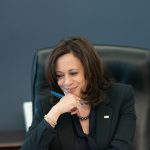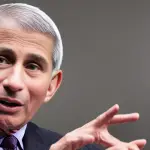In Peter Schweizer’s bestselling book Red-Handed: How American Elites Get Rich Helping China Win, it is revealed that former U.S. Secretary of State Henry Kissinger is embroiled in a controversial web of business deals and government ties with China. Schweizer exposes Kissinger’s lucrative relationships with the Chinese government and his business ventures while also providing insight into his public commentary on U.S.-China relations.
Kissinger, a revered figure in the world of American diplomacy, has deeply intertwined his personal financial pursuits with his diplomatic ties, creating a conflict of interest that undermines his credibility. After leaving government service, Kissinger founded Kissinger Associates, leveraging his unparalleled relationships overseas to facilitate business deals with Chinese officials. Despite lacking legal or financial expertise, Kissinger’s business thrived due to his close ties with the Chinese government, allowing him to open doors for foreign clients and navigate the complexities of Chinese bureaucracy.
As Kissinger continued to shape America’s approach to China, questions arose about the ethical implications of his actions. During the Tiananmen Square massacre in 1989, Kissinger’s public commentary on the U.S. response to the brutal crackdown raised suspicions about the influence of his business dealings in Beijing. His defense of the Chinese government’s actions, coupled with his lucrative business deals, signified a clear conflict of interest that compromised his impartiality on U.S.-China relations.
Peter Schweizer: How Henry Kissinger Became an ‘Old Friend’ of China Who ‘Rendered Great Help’ to the CCP https://t.co/2wD0Wt15RI
— Peter Schweizer (@peterschweizer) November 30, 2023
Furthermore, Kissinger’s involvement in commercial ventures, such as the launch of China Ventures in 1988, which promised substantial financial gains, raised concerns about the intertwining of his personal financial interests and his influence on U.S. foreign policy. His involvement in lobbying efforts and corporate advisory roles further blurred the lines between his business pursuits and his diplomatic engagement with China.
Kissinger’s reputation as a major friend of China has continued to raise questions about the extent of his ties with the Chinese government, which have been overlooked and downplayed, fueling speculations about his role in shaping U.S.-China relations. His position as an influential analyst on U.S.-China relations, combined with his financial interests, raises serious concerns about the integrity of his diplomatic engagements and public commentary.
In conclusion, Peter Schweizer’s exposé sheds light on the tangled web of financial interests and diplomatic ties that have defined Henry Kissinger’s relationship with China. The revelations call into question the ethical implications of his actions and their influence on U.S. foreign policy, ultimately challenging the integrity and impartiality of his role in shaping America’s approach to China.




